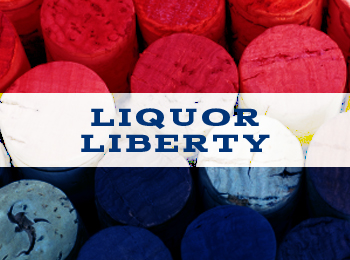Media

Liquor Liberty at Long Last?
Yesterday, Gov. Tom Corbett unveiled his proposal for privatizing the government-run liquor stores and bringing Pennsylvania into the 21st century when it comes to the sale of alcohol. Pennsylvania currently remains one of only two states where government controls the sale of all wine and liquor.
You can read Commonwealth Foundation’s response here, and get some facts about liquor privatization here.
Here is a summary of Corbett’s proposal:
Replaces current government-run liquor stores with new wine and spirits stores.
- 1,200 stand-alone wine and spirits licenses (800 big stores, 400 smaller) would be auctioned off, with a set number for each county.
- A business can hold a maximum of 40 licenses statewide and 10 percent in any county (or one in a county with fewer than 10 stores).
Existing stores would be able to sell wine and beer.
- Big Box stores, grocery stores, pharmacies and convenience stores could pay a one-time application fee and annual license fees to sell wine and beer.
- There would be no limit on the number of licenses, but limits on how much beer and wine they could sell, based on the type of license.
- Beer distributors would be able to sell six-packs and wine. They can also bid on the 1,200 wine and spirits licenses, which would allow them to be the only places to get wine, beer and liquor.
Wholesale privatization
- The state would negotiate wholesale licenses to distribute wine and liquor products to stores, bars and restaurants by brand. After paying a license fee based on valuation, a wholesaler would have the exclusive right to distribute that brand throughout Pennsylvania.
An estimated $1.02 billion in up-front money over three to four years.
- This includes the auction of wine and spirits licenses, wholesale privatization, licenses for existing stores, and enhanced beer distributor licenses.
- This funding would be used to provide $1 billion to public schools over four years through a block grant. Schools could spend this on school safety, K-3 reading and math programs, customized learning programs, or science and math initiatives for grades 6-12.
Fees and taxes would bring the same revenue to the commonwealth.
- The Johnstown Flood Tax and current sales tax would remain. Additional revenue would come from corporate and personal income taxes, annual licensing fees, and fines.
- The revenue would cover Liquor Control Board operations (limited to enforcement and regulation), and allow for increased funding for state police enforcement and alcohol prevention programs.
Insignificant changes in liquor and wine prices, but a significant reduction in “border bleed.”
- An economic modeling analysis from The PFM Group projects $92 million in additional sales in the state’s most populous regions.
The proposal would offer benefits for current PLCB employees.
- These include training and education grants, tax credits for businesses to hire displaced workers, and a civil service hiring preference.